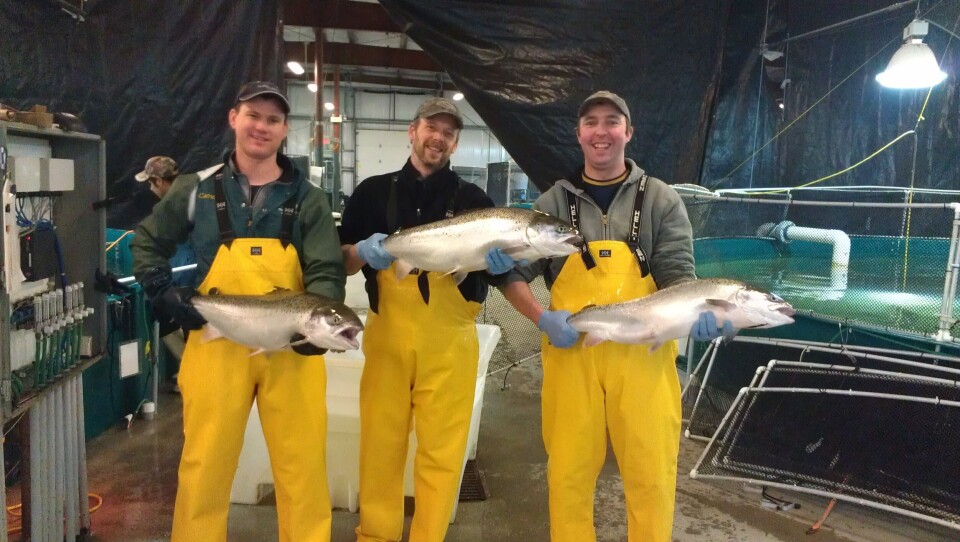
Hypoxia tolerance sought
Marine Harvest Canada, in collaboration with researchers from UBC, is using genomics to select broodstock with higher tolerance of low oxygen levels.
Funded in part by Genome BC, Drs Patricia Schulte and Toney Farrell have initiated a family-based breeding program with MHC to use genomics to explore the ability of farm-raised Atlantic salmon to tolerate low oxygen conditions (hypoxia) in the ocean. Hypoxia events are linked to increasing sea temperatures, which result in less dissolved oxygen, as well as changes in ocean currents that upwell large pockets of deep water low in oxygen. Around the world, hypoxic events are becoming more frequent and last for a longer, presenting a real problem for aquaculture.
“Improving the ability of salmon to tolerate hypoxia will be critical for the competitiveness of salmon farming in BC because episodes of hypoxia are becoming increasingly common along the BC coast, particularly in late summer,” says Dr Schulte, Professor, Department of Zoology at UBC.
“Hypoxia can be lethal for fish, and even at sublethal levels it has economic costs because food is often withheld during periods of hypoxia to help improve survival, and then additional feeding is required to allow catch up growth after the hypoxic episode.”
Hypoxic events represent an important economic cost to MHC, due to lost revenue resulting from poor fish performance, and it is anticipated that these losses will increase as the prevalence of hypoxia continues to rise. The long term goal of this research is to help Marine Harvest increase their capacity to incorporate hypoxia-tolerance as a trait in their broodstock selection program.
“Marine Harvest Canada is well positioned to take advantage of information regarding hypoxia-tolerance in their strains of fish by incorporating this phenotype into their breeding plans,” says Dr Diane Morrison, Project Leader and Fish Health and Food Safety Director at Marine Harvest Canada.
Yvonne Sheehan, Brood Program Manager, adds: “Moving towards genomics-based broodstock improvement will require genomic resources for the distinct strains that we use and this project is an important first step.”
“The partnership between the UBC-based researchers and Marine Harvest Canada is exactly what we have in mind when addressing sector challenges,” says Dr Alan Winter, President and CEO of Genome BC. “This work will have a significant positive impact on the economic outcomes for aquaculture in BC.”
This project, funded through Genome BC’s User Partnership Program (UPP), will act as a proof of principle for the application of genomics to the MHC broodstock program and a first step towards the long term goal of developing genomic selection for the BC aquaculture industry.























































